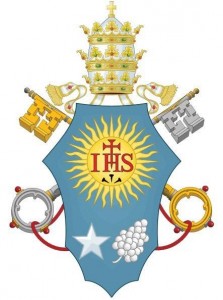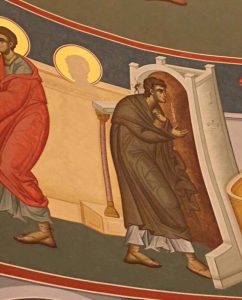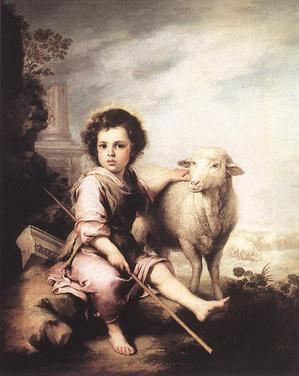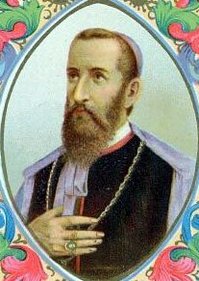 The Holy Father meets with the Roman Curia typically on the Third Saturday of Advent in the Clementine Hall. In the past the papal address was longer and had a slightly different tone and content. Francis’ talk this year is spiritual with with a tone of fraternal correction aiming at a more substantive pastoral ministry for the of the person, and that of others. What the pope said to the curia is applicable to all. It ought to be attended to by all of us.
The Holy Father meets with the Roman Curia typically on the Third Saturday of Advent in the Clementine Hall. In the past the papal address was longer and had a slightly different tone and content. Francis’ talk this year is spiritual with with a tone of fraternal correction aiming at a more substantive pastoral ministry for the of the person, and that of others. What the pope said to the curia is applicable to all. It ought to be attended to by all of us.
The Lord has enabled us to journey through Advent, and all too quickly we have come to these final days before Christmas. They are days marked by a unique spiritual climate made up of emotions, memories and signs, both liturgical and otherwise, such as the creche… It is in this climate that this traditional meeting takes place with you, the Superiors and Officials of the Roman Curia, who cooperate daily in the service of the Church. I greet all of you with affection. Allow me to extend a special greeting to Archbishop Pietro Parolin, who recently began his service as Secretary of State, and who needs our prayers!
While our hearts are full of gratitude to God, who so loved us that he gave us his only-begotten Son, it is also good to make room for gratitude to one another. In this, my first Christmas as the Bishop of Rome, I also feel the need to offer sincere thanks to all of you as a community of service, and to each of you individually. I thank you for the work which you do each day: for the care, diligence and creativity which you display; and for your effort – I know it is not always easy – to work together in the office, both to listen to and challenge one another, and to bring out the best in all your different personalities and gifts, in a spirit of mutual respect.
In a particular way, I want to express my gratitude to those now concluding their service and approaching retirement. As priests and bishops, we know full well that we never really retire, but we do leave the office, and rightly so, not least to devote ourselves a little more fully to prayer and the care of souls, starting with our own! So a very special and heartfelt “thank you” goes to those of you who have worked here for so many years with immense dedication, hidden from the eyes of the world. This is something truly admirable. I have such high regard for these “Monsignori” who are cut from the same mould as the curiales of olden times, exemplary persons… We need them today, too! People who work with competence, precision and self-sacrifice in the fulfilment of their daily duties. Here I would like to mention some of them by name, as a way of expressing my esteem and my gratitude, but we know that, in any list, the first names people notice are the ones that are missing! Besides, I would also risk overlooking someone and thus committing an injustice and a lack of charity. But I want to say to these brothers of ours that they offer a very important witness in the Church’s journey through history.
They are also an example, and their example and their witness make me think of two hallmarks of the curial official, and even more of curial superiors, which I would like to emphasize: professionalism and service.
Professionalism, by which I mean competence, study, keeping abreast of things… This is a basic requisite for working in the Curia. Naturally, professionalism is something which develops, and is in part acquired; but I think that, precisely for it to develop and to be acquired, there has to be a good foundation from the outset.
The second hallmark is service: service to the Pope and to the bishops, to the universal Church and to the particular Churches. In the Roman Curia, one learns – in a special way, “one breathes in” – this twofold aspect of the Church, this interplay of the universal and the particular. I think that this is one of the finest experiences of those who live and work in Rome: “to sense” the Church in this way. When professionalism is lacking, there is a slow drift downwards towards mediocrity. Dossiers become full of trite and lifeless information, and incapable of opening up lofty perspectives. Then too, when the attitude is no longer one of service to the particular Churches and their bishops, the structure of the Curia turns into a ponderous, bureaucratic customshouse, constantly inspecting and questioning, hindering the working of the Holy Spirit and the growth of God’s people.
To these two qualities of professionalism and service, I would also like to add a third, which is holiness of life. We know very well that, in the hierarchy of values, this is the most important. Indeed, it is basic for the quality of our work, our service. Here I would like to say that in the Roman Curia there have been, and still are, saints. I have said this publicly on more than one occasion, as a way of thanking the Lord. Holiness means a life immersed in the Spirit, a heart open to God, constant prayer, deep humility and fraternal charity in our relationships with our fellow workers. It also means apostleship, discreet and faithful pastoral service, zealously carried out in direct contact with God’s people. For priests, this is indispensable.
Holiness, in the Curia, also means conscientious objection. Yes, conscientious objection to gossip! We rightfully insist on the importance of conscientious objection, but perhaps we too need to exercise it as a means of defending ourselves from an unwritten law of our surroundings, which unfortunately is that of gossip. So let us all be conscientious objectors; and mind you, I am not simply preaching! For gossip is harmful to people, harmful to our work and our surroundings.
Dear brothers and sisters, let us feel close to one another on this final stretch of the road to Bethlehem. We would do well to meditate on Saint Joseph, who was so silent yet so necessary at the side of Our Lady. Let us think about him and his loving concern for his Spouse and for the Baby Jesus. This can tell us a lot about our own service to the Church! So let us experience this Christmas in spiritual closeness to Saint Joseph. This will benefit all of us!
I thank you most heartily for your work and especially for your prayers. Truly I feel “borne aloft” by your prayers and I ask you to continue to support me in this way. I too remember you before the Lord, and I impart my blessing as I offer my best wishes for a Christmas filled with light and peace for each of you and for all your dear ones. Happy Christmas!
 Here’s a fitting icon reflecting how we can leave holiness behind.
Here’s a fitting icon reflecting how we can leave holiness behind.

